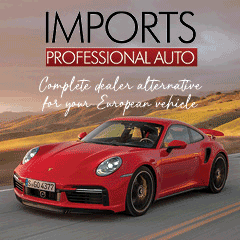Star Power
With her unquestionable charisma and a commitment to roles that push the envelope, Sydney Sweeney has established herself as one of Hollywood’s most intriguing young artists.

Photo by Linnea Stephan /BFA.com/Shutterstock
Sydney Sweeney has swiftly emerged as one of the most compelling young actresses of her generation. From her Pacific Northwest roots of Spokane, Washington, she has managed to captivate audiences worldwide with her multifaceted performances and undeniable presence.
The stunning 27-year-old’s most prominent roles include the intense and troubled Cassie Howard in the critically acclaimed HBO series Euphoria, and the earnest Eden in the dystopian drama The Handmaid’s Tale.
Sweeney has showcased a brilliant ability to transcend genres, moving seamlessly from teen dramas to historical pieces, like her character Alice in The Voyeurs or Olivia in The White Lotus, a role that, along with Euphoria, saw Sweeney noted as a supporting Emmy nominee.
Film projects have started to dominate the landscape in recent years, with Anyone But You and Immaculate turning heads.
As part of this on-screen dominance, Sweeney is known for having a razor-sharp dedication to her craft, desperate to embody the characters she plays with depth, detail and design. Colleagues regularly praise her work ethic, while fans adore what is a genuine and down-to-earth approach to an industry often full of pumped-up egos.
A commitment to storytelling is evident not just in her roles but also in activities behind the camera, with Sweeney having taken steps to produce various projects. She’s back to straight acting duties, however, in the upcoming Echo Valley, in which she stars alongside Julianne Moore and Domhnall Gleeson.
Away from work, the actress and model remains a grounded and passionate artist.
You are everywhere at the moment. Which of your recent projects have given you the greatest satisfaction?
I’ve had a real mix of films and drama—I think a few that have stood out have been the HBO movie Reality—I spoke to the main, character, Reality, to ask her about herself, her life, who she is, her relationships with her friends and family and, obviously, her thoughts and experiences when being interrogated by the FBI over the government information release to the media.
That was really something talking to her and then [to] immerse myself in a real person. Those projects are exciting.
Madame Web was a major thing, and although it had mixed reviews I’m still very proud of it. Then Immaculate came along, which was a big step because it furthered my aims to produce. That’s important to me because producing offers me a lot more control and direction in the process—much more variety than you would have otherwise.
And going back further, Euphoria was a major thing for me—not just in the fact it brought me to a wide audience, but in the type of drama that it was and still is.
Indeed, it has been seen by some as a controversial but realistic take on teenage life. Do you agree, and were you shocked by anything when you read the script?
Euphoria boldly addresses challenging subjects. Although its narrative might not resonate with every teenager’s personal journey, it does mirror the raw realities faced by a significant number.
When I first read the script, there were instances that genuinely surprised me and made me pause. However, when I thought about it, that just emphasized the critical need to bring this sort of narrative to the forefront, and I’m glad we did.
How did you prepare for it and how lucky do you feel to be in such a ground-breaking show?
My preparation was, let’s just say, comprehensive! It required extensive dialogue with the showrunners to grasp the series’ essence and ethos. I dedicated time to dive deeply into my character’s psyche, nuances and motivations.
Building a rapport and synergy with my co-stars was also vital if we were going to create some feeling of on-screen authenticity. And, you know, I think we succeeded.
Echo Valley seems like a different kind of role for you. What drew you to that story?
It’s one of the most emotional characters I’ve ever played. The script, by Brad Ingelsby, just gutted me.
When I first read it, I was on a plane from New York to L.A. and I had tears streaming down my face at 30,000 feet.
I play Claire, this deeply wounded, mysterious young woman who shows up on her mother’s doorstep one night—her mother is played by Julianne Moore, who is incredible. The film unpacks their entire history over one intense 24-hour period. It’s quiet and haunting and kind of scary in a way that doesn’t rely on jump scares.
Ridley Scott produced it and Mare of Easttown’s Michael Pearce directed, so it’s in really capable hands. I loved stepping into that more grounded, emotional space. I wasn’t wearing glitter or eyeliner—I was in muddy boots and a hoodie, and it felt raw and real. People are going to see a very different side of me in that film.
What was it like working alongside Julianne Moore?
Working with Julianne was honestly a masterclass. I’ve admired her since Far from Heaven and Still Alice, and the way she can hold a scene with just a glance is unreal.
On Echo Valley, she plays my mom, and a lot of the story hinges on this tension between us—this history that’s never fully spoken but always there in the silence. We spent time together off-set, just walking through the Pennsylvania farmland where we were shooting, talking about our characters’ backstories.
We even built this sort of private timeline: what happened between them at age 10, 15, 21— that kind of thing. It helped us bring that quiet emotional weight to the screen. There’s one scene in particular, in the barn, where nothing is really said, but I remember finishing the take and both of us were just shaking from holding it all in. That’s the kind of work I want to do.
I will say Echo Valley challenged me more than anything I’ve done. It made me dig deeper.
So there was something about it that really felt different from your past projects.
Definitely. Echo Valley felt like stepping into a different rhythm—everything was slower, more deliberate. We weren’t rushing through scenes or punching up energy for the camera. It was quiet, and kind of eerie, in the best way.
The whole film lives in these unspoken moments, and that forced me to be still, to trust the silence. I remember our director, Michael Pearce, saying during rehearsals, “Don’t act, just exist in it,” and that really stuck with me.
It’s also the first time I’ve played a character who’s been through something dark that she doesn’t explain, and that sort of subtle, psychological tension was new for me. And the location helped—we shot in Chester County, Pennsylvania, and the land itself felt like a character. Moody skies, creaking barns, foggy mornings. It was all very stripped down. Just me, Julianne, the mud, and the silence. Honestly, it was the kind of film I’ve been dreaming of doing for years.
Tell us about Americana.
Americana is this gritty, indie Western with a twist: It’s set in modern-day California! I play Penny Jo, a drifter who’s running from something, and she ends up tangled in this stolen Native American artifact scheme.
Filming was dusty and chaotic—we shot it out in the Mojave with no cell service and lots of rattlesnakes. I loved every minute.
Tony Tost, who directed, has this poetic way of capturing forgotten corners of America. It’s not a glossy movie. It’s strange and sad and beautiful. It reminded me why I love independent film—you have to fight for every shot, every take, and everyone on set is there because they want to be. I think it’ll surprise people. It surprised me.
Your success is prolific, although not everything hits in the way you like in this industry. Talk to me about Madame Web—how do you handle that kind of disappointment in such a public space?
Look, I knew what I was signing up for when I joined Madame Web. It was a big studio film with a legacy IP, and I wanted to learn from that experience—good or bad. But yeah, when it didn’t hit the way we hoped, it stung. I care about the work I do, and I don’t take any job lightly, whether it’s an indie in the desert or a Marvel-adjacent blockbuster.
The discourse around it got kind of mean, honestly, but the truth is one project doesn’t define you. I’ve been doing this since I was 12, and there have been plenty of “no’s” and “almosts” along the way. You brush yourself off, thank the people who worked hard beside you, and you focus on what’s next.
Is there any role that you want to do in the future?
I have a particular fondness for period dramas; there’s something enticing about stepping back in time, embodying characters from different eras and experiencing their worlds.
I’m also fascinated by the complex personalities in psychological thrillers. Acting is all about change and growth. It lets you constantly challenge yourself and discover new sides of you.
Were you a big fan of film growing up?
Not really—most of my time was spent outdoors and TV or film didn’t really come into it. I was a very sporty child, and that taught me a lot about teamwork, discipline and resilience, all of which come in handy in the film industry!
Despite the allure of sport, I never truly envisioned a future in athletics.
Who do you look up to in Hollywood and were there you any role models or actors you wanted to be like when you were growing up?
I’ve always admired Meryl Streep for her range and dedication. Growing up, I was also inspired by the likes of Natalie Portman and Julia Roberts. They are all tremendously strong women who have forged unique paths, and I love that.
You’ve surprised people with your love of cars and motorsports. Where did that passion come from?
I think people assume I’m all pink dresses and makeup, but honestly, give me an oil-stained hoodie and a wrench and I’m happy.
I rebuilt a 1969 Ford Bronco during the pandemic—took it apart with my own hands and rebuilt the engine from scratch.
My grandfather used to race stock cars, and when I was little I’d hang out in the garage with him in Idaho, watching him work on his old pickup. And that stuck with me. Now I have a little garage of my own in L.A., and it’s my escape. No cameras, no scripts—just me and the car.
I’ve posted some of it on TikTok and Instagram and people are like, “Wait, this isn’t a sponsored video?” It’s not—it’s just a genuine love. I think there’s power in women taking up space in traditionally male-dominated hobbies. Plus, it’s nice to know if Hollywood ever kicks me out, I could be a mechanic!










